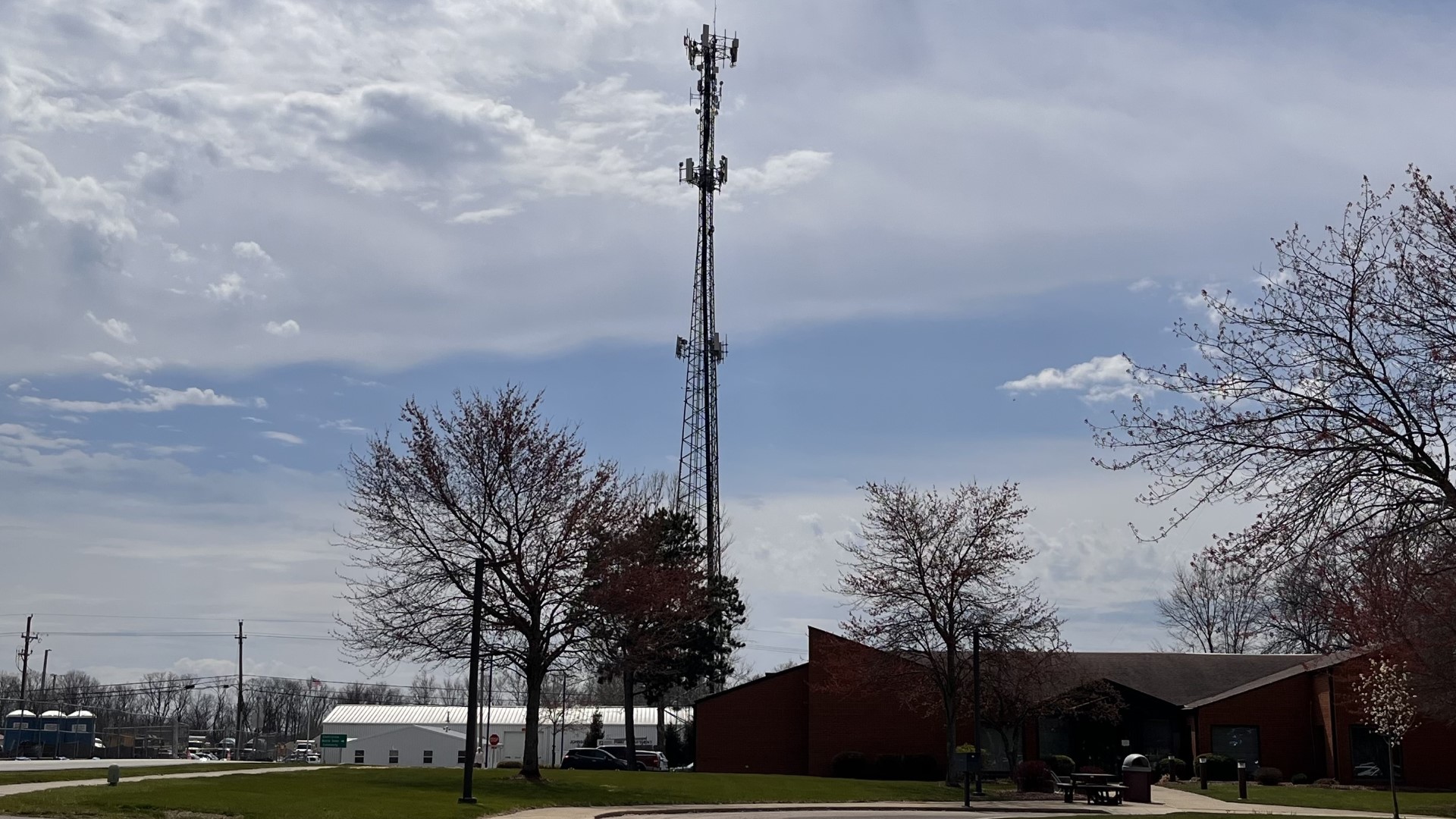JOHNSON COUNTY, Ind. — The solar eclipse across central Indiana is quickly approaching.
We've shared where to watch it, how to view it safely and how to navigate crowds and traffic on April 8.
But what about our cellphones? Will you be able to make calls? Use GPS? Will service be spotty? Drop out during the event?
Just think about it. On April 8, you and your cellphone are going to have a whole lot of company.
In fact, in Johnson County alone, the population is expected to double for the day.
Most of the people visiting the path of totality are likely to be on their phones, potentially straining cell service.
Cell service providers compare the big eclipse in April to Indy's biggest event in May.
"It's something that we deal with quite frequently when you think about it," said Verizon spokesperson Jeff Kew. "When it comes to massive sporting events, when it comes to Indianapolis and the Indy 500, you're looking at close to a quarter of a million gathered in one small space for a very significant amount of time. And the network holds up just fine."
Verizon says customers during the eclipse should stay connected, too.
"Based on everything that we have tested and experienced ourselves and with the layering of bandwidth that we have over the last few years and how that's grown? We expect the network to uphold just fine," Kew said.
AT&T says it expects the eclipse will not have a negative impact on its cell service.
In a statement to 13News, a spokesperson said:
"Our network has drastically changed since the last solar eclipse in 2017. Our customers now have the benefit of AT&T 5G which provides unique experiences, faster speeds and capacity to do more of the things our customers like. We expanded our 5G network to reach more than 295 million people in nearly 24,500 cities and towns in the U.S. Our higher-speed mid-band 5G+ spectrum alone covers more than 210 million people. Our bandwidth has increased significantly in the last few years, providing for an improved experience on our network as a result."
Cell providers say if data goes up, their engineers can adjust on the fly.
"We have abilities to boost coverage where we need to when we need to," Kew said.
Some NASA scientists do warn cell service could get spotty, temporarily.
In an article from the fall, they said a solar eclipse suddenly changes the structure of the ionosphere, which can temporarily disrupt radio signals and GPS navigation.
So, if you're driving? Emergency responders recommend having a backup plan for your directions.
"Dig out some old paper maps," said Mike Pruitt with the Johnson County Joint Incident Management Team. "Because when you have that type of influx into the community, there's no guarantee you're going to be able to get on and use your GPS systems on your phones."
With gridlock likely on the roads after the eclipse (first responders warn you could sit in traffic for nine hours), what about emergencies? And higher call volumes?
911 dispatchers say it's an all hands on deck day April 8.
"Here we're going to upstaff," said Heath Brant, Johnson County 911 Director. "We're going to have extra people working to take those extra phone calls. We're going to be ready for whatever we face that day. The cell networks can only handle so much. So there can be times where cell towers will be at their maximum capacity and people may have difficulties making phone calls."
Dispatchers recommend if you do have an emergency that day, get to a landline if you can.
Keep trying 911 if you can't get through. And reserve 911 for legit emergencies.
"If it's not an emergency, don't call 911," Brant said. "Get your local non-emergent number and make that phone call. If you're stuck in traffic, don't call 911."
Bottom line, cell providers don't expect towers to get overwhelmed – even with hundreds of thousands of tourists calling and tweeting and texting and posting all at once.

